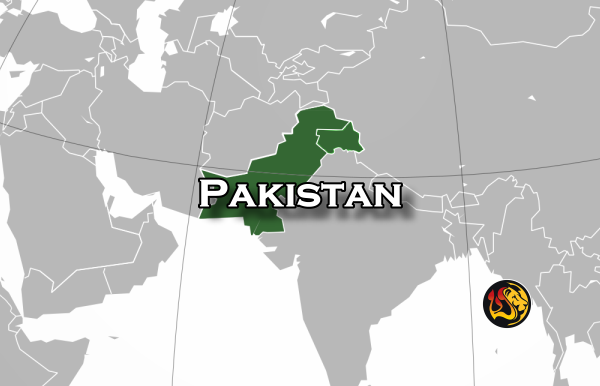By Stefan J. Bos, Chief International Correspondent Worthy News
(Worthy News) - Several Catholic priests and nuns have urged Christians in Pakistan to learn to live with strict blasphemy laws amid ongoing anti-Christian violence in this mainly Muslim nation.
Their appeal comes after the European Parliament adopted a resolution calling for abolishing Pakistan’s blasphemy legislation, citing “an alarming increase in accusations of ‘blasphemy.’”
However,” It is impossible to abolish blasphemy laws,” countered priest Khalid Rashid Asi, director of the Diocesan Commission for Harmony and Interfaith Dialogue Faisalabad Diocese.
“Our struggle to end it will fail. It is wrong to raise such slogans. It creates unrest. We are heralds of hope, but we should not give false hope to others. People don’t listen,” he stressed.
Asi spoke at a gathering in remembrance of Bishop John Joseph of Faisalabad. The Bishop killed himself on May 6, 1998, in front of a courthouse after Christian Ayub Masih was sentenced to death for blasphemy.
Dominican Sister Naseem George also rejected trying to repeal blasphemy laws, saying it would lead to more violence against Christians. “My first thought is it’s impossible [to repeal the legislation]. Mob vigilantes have spread fear and harassment...Even police can’t control them. This pressure has made it difficult to breathe,” she said in published remarks.
MANY KILLED
Between 1990 and 2019, 15 Christians were murdered because of “blasphemy” against Islam allegations, even before their trial could be conducted under the law, rights activists say.
Separately Pakistan’s Minorities Minister Shahbaz Bhatti, a Christian opposing the blasphemy legislation, was shot dead by Islamic gunmen in March 2011 in the capital, Islamabad. His killing cams after the Salmaan Taseer, the governor of Punjab province, was assassinated in January of that year for speaking out against the legislation. He was shot and killed at a popular market in Islamabad by one of his security detail.
Seven Christians were on death row as of October 2020 and about another 20 in prison on “blasphemy” charges, according to Christian rights activists familiar with the situation. Muslims have also violently targeted entire Christian communities following allegations
The Human Rights Commission of Pakistan cited police data showing that at least 586 persons were charged with blasphemy in 2020, with the overwhelming majority from Punjab province. In many cases, the charges were false and used to settle personal disagreements, according to trial observers.
“Christians are especially vulnerable,” noted Barnabas Fund, a Christian advocacy and aid group working in Muslim majority nations. “Simply stating their [Christian] beliefs can be construed as “blasphemy.” And the lower courts usually favor the testimony of Muslims, under sharia” or Muslim law, the group explained.
According to the 2021 annual report of the United States Commission on International Religious Freedom, conditions in Pakistan continued to worsen. “The government systematically enforced blasphemy and anti-Ahmadiyya laws and failed to protect religious minorities from abuses by non-state actors.”
MODIFYING LEGISLATION
Some Christian experts have suggested modifying Pakistan’s blasphemy legislation
to ensure that false accusations could result in fines or imprisonment.
Pakistan’s notorious “blasphemy” laws have existed since 1927 and were incorporated into Pakistan’s Penal Code at the country’s founding in 1947.
The laws were strengthened under the military government of General Zia-ul-Haq, who ruled in 1978-1988.
Under his rule, authorities introduced mandatory life imprisonment for desecration of Islam’s book, the Koran, in 1982. Pakistan added the death sentence for defiling the name of Muhammad, the Islamic prophet, in 1986.
A subsequent decision by Pakistan's constitutional court making the death sentence for “blasphemy” against Muhammad mandatory came into effect in 1991.

